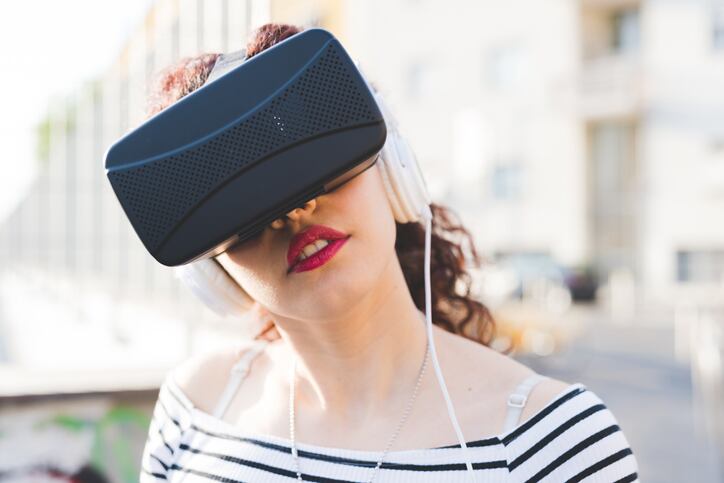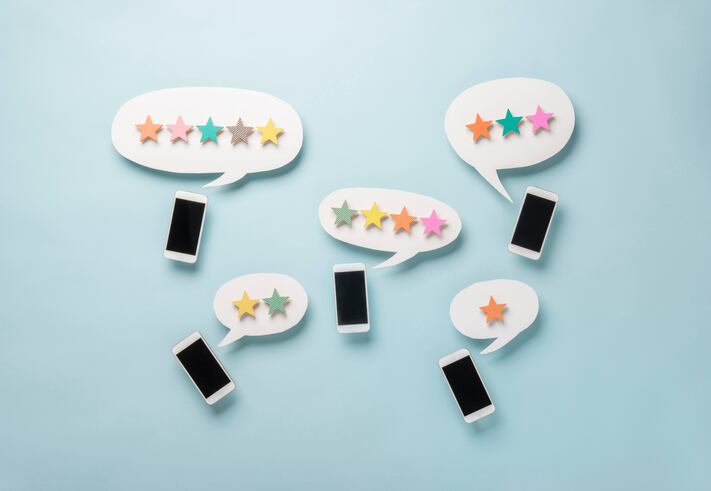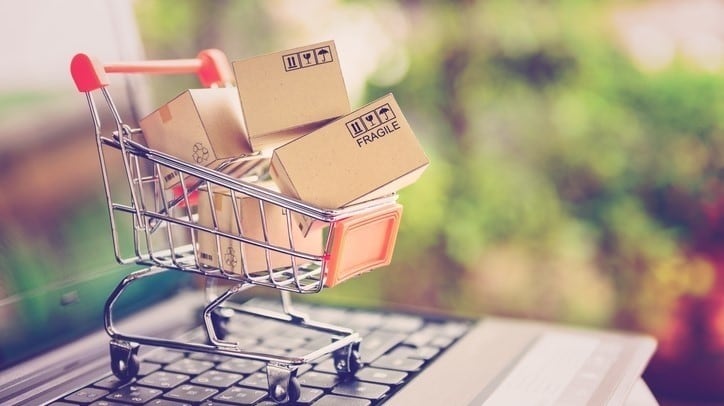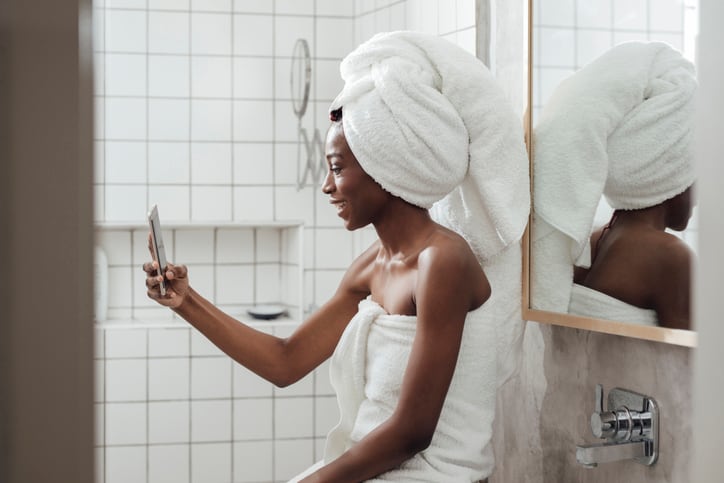Generally, what's happening with AI in the beauty segment right now?
In beauty, on the whole, it's not just now. It has been a trend that has been here for more than 10 years, which is basically touching different things around the IoT, virtual reality and virtual try-on, which are now accelerating with crypto collectibles. The Metaverse has specific parallel realities of shopping.
What we can say is that AI was already extremely used in beauty. Around 2015, we saw a lot of connected devices in hair care and skin care. Some of them were connected brushes, some of them were a personalized way to design a product that is exactly adapted to your skin, or your hair, like sending the hair to a lab to analyze the DNA of your hair so that we can do an exact product for the hair needs.
AI has always been used extensively in beauty, whatever the degree, including in oral care and toothbrushes, and now it's just accelerating in different ways.
Have there been any particularly interesting technological innovations around AI recently?
You do have a big trend of virtual reality shopping experiences. You've seen Lancôme do a virtual reality pop-up in 2021, and virtual reality store for fragrance and now virtual try on, which is what L'Oreal bought with ModiFace.
But what I find fascinating now for us in makeup and in color cosmetics is that there is a big territory on the Metaverse for the future where our consumers will have a full brand immersion, which we created, integrating their own avatar but not with very bad pixelization, almost real, into a parallel reality where they could play with products and experience. They could even buy products with crypto money and integrate that not only into gaming but in a second life with this augmented reality.
What do you see as challenges or barriers for beauty companies in AI?
First of all, it's the lack of knowledge and understanding of these trends, being mainly focused on IT and cybersecurity and not spending enough time on all these cosmetic AI trends, which are not even the future, they are the present.
Additionally, not spending enough time, money and resources to build their capabilities to be the beauty of the future and believing that beauty is just selling some product on the shelf and a physical shelf in a plastic bottle with a price tag. That's the limitation today that I see. It's a combination of mental barriers, lack of knowledge, no access to the right resources in terms of the right people are even not anticipating a future that changes drastically, which we see.
COVID has been an accelerator, but when we see the numbers, post-COVID is not going down that much in terms of digital content, in terms of CRM, and ultimately in terms of e-commerce. AI is part of that.
We've talked about how AI is being used in the customer-facing side of the business. Do you see AI being used at all internally or having any use internally for cosmetics companies?
Well, yes, but no more and no less than any company.
That means faster predictability, a faster adaptation of product innovation, acceleration and optimization of your marketing mixed with higher ROI, better visualization of your visitors with the right-field time dashboards, direct connection with end consumers that are becoming expert consumers, not in a panel, but basically interacting with you and co-creating and cold sourcing with you.
All of this is something that internally, actually, most of the model companies are doing or testing. It has a huge impact. Indeed, it probably comes from some companies which are slow and high-middle and very top-down into more agile companies, breaking silos, thanks to faster analyzes. That's what I see.
Is there anything that you are particularly excited about in the AI beauty space
I'm particularly excited about what I talked about at the beginning, which is the Metaverse. I believe that the frontier between reality and virtual reality, testing real-time products, touching them and feeling them, that border will be totally blurred, and it is already. As well, people will seamlessly move from reality to augmented reality, to be honest, in a way that the generation of our parents is not used to, and that will become normal.
It will not be like telling your kids to not take their phone because actually, we're going to move from wearables in terms of IoT to something which is in us, on us. As a consequence, there will be no limitations. We're not talking science fiction, it's already being tested, and it's a choice.
It's as simple as putting on something that is analyzing the light that is coming off your skin, to optimize the idolization of your skin, all the SPF sun protection factor you put on your skin, depending on the time of the day.
I think that the Metaverse for me is huge, not only for a virtual reality shopping experience, but is a new beauty experience that will be much more fulfilling for everybody, and that will fulfill not only what people want, but their dream. They could be at the end the person they always strive to be, and that I think it's gonna have legs very fast.
What else is important for beauty professionals to know about AI today?
You need to be consumer-centric, and when you're a consumer and not a professional of beauty, what you want is an experience that is optimized. You move from one to the other, you will move seamlessly.
Only we think in terms of data strategy, content, CRM, e-commerce experience. Consumers just want to seamlessly move from one to the other. The Chinese consumer is probably more advanced than the European and French or the American because it's everything on the same platform. You don't need to move from one to the other. You can basically speak with an influencer, talk with your friends, WhatsApp, Insta, Google, Amazon, on the same platform.
I think that for us, it's important to understand the seamlessness of all this and to put ourselves in the shoes of the consumer. If we are consumer-centric, we don't look at it the same way as if we're looking at it top-down as a professional.




